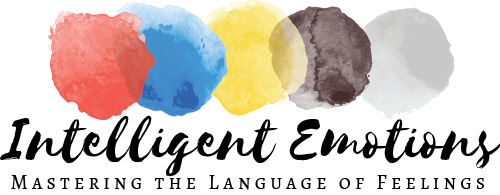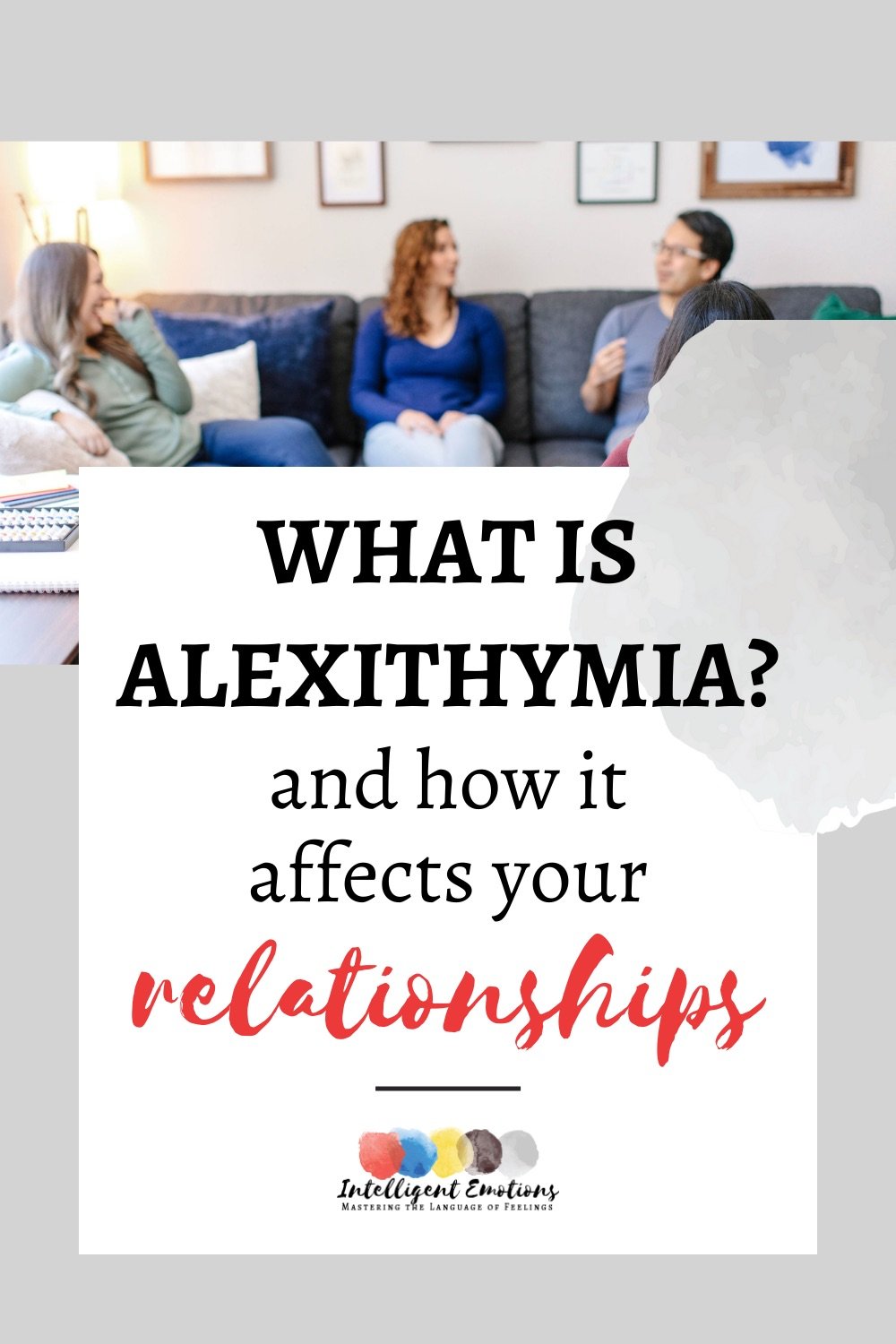What is Alexithymia?
If you've ever actually heard of this word before you hit your 30s, wow - hats off to you! I really wish I knew this when I was younger - would have saved me a lot of heart/headache from self-gaslighting or questioning my own emotional experiences.
What is alexithymia? In the Greek, it means:
a ("not")
lexis ("speaking")
thumos ("heart")
...or in short, "without words for emotions."
Difficulty Expressing Emotions
Alexithymia is the experience where someone has no connection to, knowledge about, or awareness of emotions - whether it be their own emotions or of others. Someone who is alexithymic has difficulty putting their own and others' emotions into words, let alone knowing how to navigate or tolerate them.
Imagine being stuck in a foreign country where you don’t know the language (and you have no translator or smart phone to bridge the gap). The best you’ve got is to either draw pictures (if you even know what you’re trying to convey) or to say what’s gibberish to others, becoming more flustered and helpless.
Often those who are alexithymic are overwhelmed, numb, and/or irritable, because their bodies SENSE that there are emotions but they have no orientation around them. They feel emotionally lost. Emotions sometimes messily leak or spill out of that person (often onto others) because they have no idea what to do otherwise.
This is all the more difficult for those who are Empaths, Highly Sensitive Persons, or the Enneagram types who tend to absorb other people’s emotions or are in relationships with those who judge those with feelings.
...Sound familiar?
It's hard to change what you don't already know is happening. It's really hard to heal from struggles that you can't even put into words.
But what is the reason behind the lack of emotions, and why does one have difficulty expressing them?
Childhood Emotional Neglect
Jonice Webb's book "Running on Empty" was a gamechanger book for me in growing out of alexithymia myself.
This is one of the Top 5 books I recommend to people who work with me, and I use the 22-question Childhood Emotional Neglect (CEN) Questionnaire as part of my normal therapy intake.
This book talks about how people become disconnected from emotions in the first place, and what can be done to reconnect themselves and with others.
One of the things I like most about this book is Chapter 2 (“Twelve Ways to End Up Empty”). This chapter lists out twelve different types of parents or situations that led someone to experience emotional neglect when they were kids.
These include:
The Narcissistic Parent
The Authoritarian Parent
The Permissive Parent
The Bereaved Parent: Divorced or Widowed
The Addicted Parent
The Depressed Parent
The Workaholic Parent
The Parent with a Special Needs Family Member
The Achievement/Perfection Focused Parent
The Sociopathic Parent
Child as Parent
The Well-Meaning-but-Neglected-Themselves Parent
How many of these things apply to you? I personally resonate with four of these.
By the way, the goal for the author is NOT to shame or blame our parents. A lot of our parents are just doing their best with what they know. Rather, the reason this book is important is that it helps validate YOUR experiences so that you can identify what you’re needing and get those needs met.
If you resonate with these and want to learn more about how childhood emotional neglect can lead to alexithymia, grab a copy of this book for yourself (scroll up).
(No, I do not have a personal relationship or professional sponsorship with the author - I'm not getting any kickbacks from her. I just think this is a super helpful book.)
Emotional Neglect in Relationships
This author also has a sequel called "Running on Empty No More", which is about how childhood emotional neglect shows up in significant attachment relationships - with one's parents, partners, and children.
I’ll write a different blog about this. In the meantime:
Grab both copies for yourself (perhaps read together with a loved one!)
Journal about your own experiences with emotions and needs in your early life, especially your family of origin
Reflect on how your experience of emotions impact your significant relationships in present day.
Find a therapist who can help you do this work. Especially for those of us who’ve grown up with Childhood Emotional Neglect, we’re all too accustomed to DIYing even meeting our own needs. Though self-help books are useful, there’s a limit to how much we can heal RELATIONAL wounds in isolation.
The BIG Feelings Masterclass
Want a more thorough overview why feelings work the way they do?
Learn how to turn your soul-sucking emotional roller coaster into your life-giving power source with this 1-hour masterclass!
Want to read this again later? Save it to Pinterest!
Other Blogs on Emotions
© Copyright 2023 Joanne Kim. All rights reserved.
Joanne Kim, Feelings Translator
Hi! I’m a therapist-turned feelings coach who helps Highly Sensitive Persons, Empaths, Enneagram 2s & 4s, etc. turn their BIGGEST feelings into their GREATEST superpower!
They are often the first (or only) person in their family to intuitively process and express feelings; consequently, they are often judged or criticized so that they learn to people please, placate, or perform until they hit a wall.
They’re super familiar with anxiety, guilt, and shame, partly because of an allergic reaction to anger (theirs and others').
Often the super responsible, empathic, and ethical person in their environments, they reach out to me after they're already burned out, resentful in their relationships, or sucked into their shame spiral.
The most common feedback I get from people when I share about how feelings work is,
"Why didn't anyone teach me this in school??"
Hence, I am building a school helping people work WITH their feelings so their feelings work FOR them.





























Perhaps there’s a better North Star to follow than The Pursuit of Happiness! Learn more about Emodiversity, the top indicator of wellness that speaks to the breadth & depth of emotions that you experience!